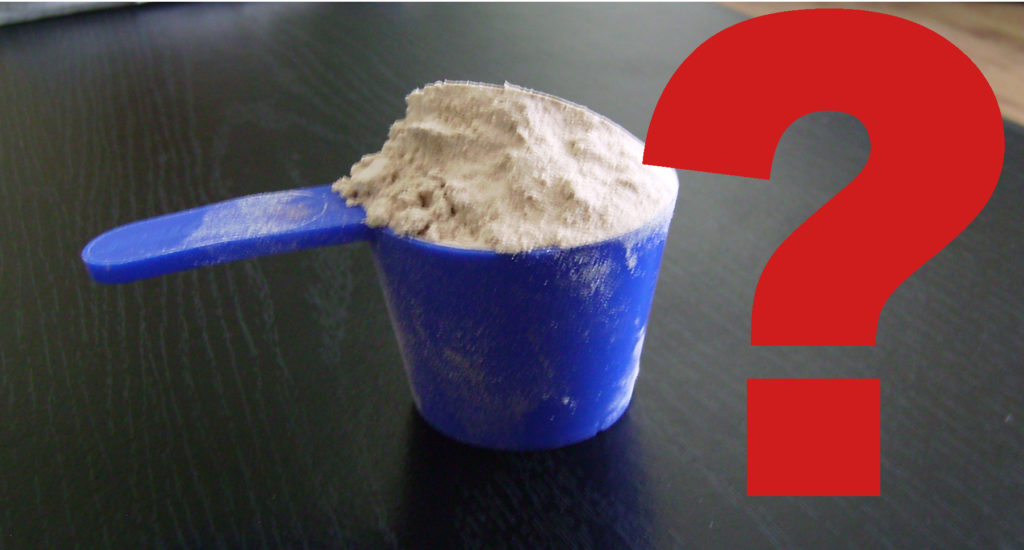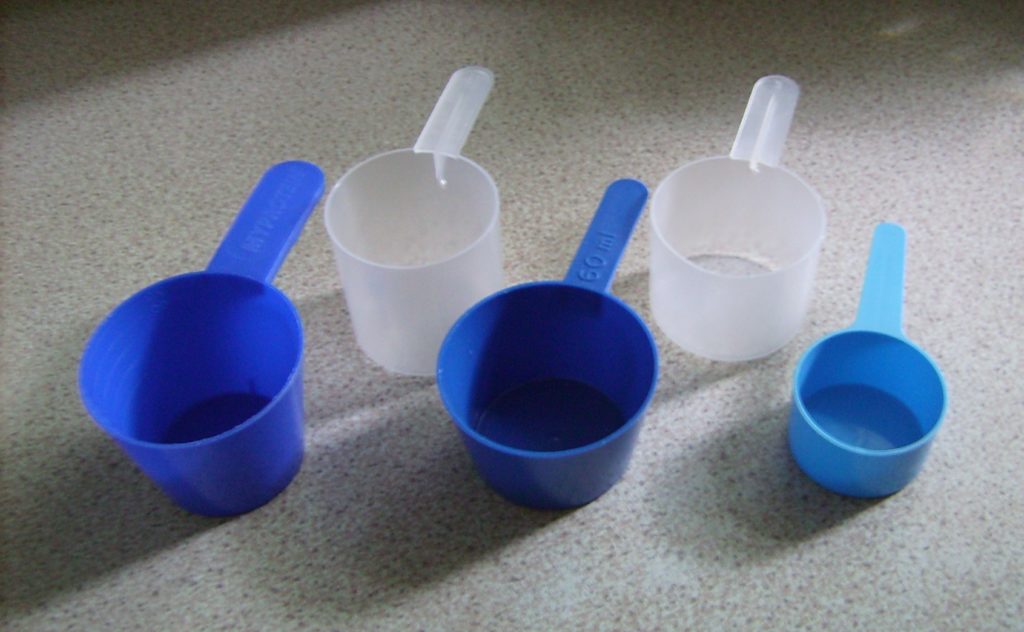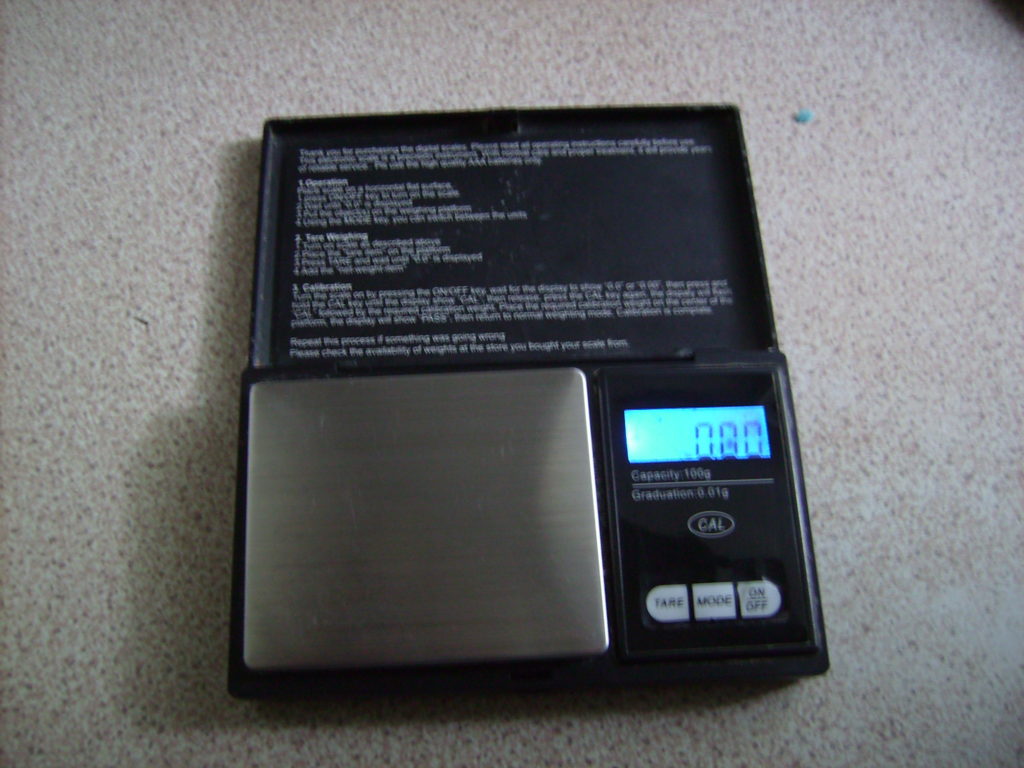Our posts may contain affiliate links and if you purchase through one of those links we may earn a small commission from the vendor which goes towards the upkeep of this site and WON’T cost you a penny more.

A question that nagged us for quite some time when it came to measuring out mixing up our protein shakes is ‘are protein powder scoops accurate?’
One thing we really want to be sure of when taking our post-workout protein shake is that we are actually getting the amount of protein we need to help maximize our efforts in the gym and recover and grow, so we did a bit of digging to find out if the amount of protein contained in a scoop is actually the amount stated on the label, and in most cases, it isn’t.
The problem is that most protein powder manufacturers tell you to use a slightly rounded, or a heaped scoop which pretty much makes the whole thing highly inaccurate, and increases the amount of powder used, thus reducing the number of servings in a tub along with the value for money, meaning that the only way a measuring scoop is going to work accurately is by using a level scoop.
The Scoop On Protein Powder Scoops…
Here are the answers to some of the most popular questions regarding protein powder scoop accuracy, along with what you can do to make sure you’re getting the exact amount of protein stated on the label of your current protein powder quickly and easily.
Are All Protein Powder Scoops The Same Size?
All protein powder scoops are not the same size.

Scoop sizes and protein content can vary quite a bit from brand to brand and from product to product.
To show you this more clearly, we looked at the scoop sizes and protein content of some of today’s most popular protein powders to see how they compared.
This is what we discovered…
One rounded scoop of Optimum Nutrition Gold Standard Whey, approximately 29.4g contains around 24g of protein.
One scoop of MyProtein Impact Whey which is approximately 25g contains around 21g of protein.
And one scoop of BSN Syntha-6 which is approximately 47g contains around 22g of protein.
Is One Scoop Of Protein Powder Enough?
This is going to depend mainly on how much protein you require on a daily basis to fuel recovery and growth, as well as on how much of your daily protein you are getting from regular foods.
If you’re taking one scoop of protein powder alongside your regular food and making progress in the gym, recovering quickly, and gaining size and strength, then one scoop is enough.
If on the other hand, you’re supplementing your diet with one scoop and not seeing any gains or improvements in recovery, then you may need more than one scoop.
And if you’re using one scoop on top of your ordinary food intake and you’re gaining fat, then one scoop is highly likely to be too much for you.
How Much Protein Do I Need?
This is going to vary from person to person as we all have different activity levels, different metabolic rates, and different genetics.
Having said that, people following a sensible strength training programme and who lift weights regularly, as well as those following an endurance-based workout programme should be consuming between 0.8 and 1.0g of protein per pound of lean bodyweight.
Anyone carrying extra body weight should concentrate on losing it through diet and exercise first otherwise they will just continue to gain weight and be wasting their time and money by using protein powders at this stage.
Side Effects Of Too Much Protein Powder…
Consuming too much protein powder can lead to developing several health problems including:
- Heart disease
- Damaged kidneys
- Kidney stones
- Increased risk of cancer
- Osteoporosis
- Diarrhea
- Constipation
- Weight gain
- Hair loss
- Bloating
- Cramps
- Headaches
- Bad breath
Which is another good reason for accurately measuring the amount you are consuming.
What Does This Mean For Me?
This means that you need to be keeping an eye on how much protein you are consuming daily for several reasons.
First, you want to avoid any of the nasties in the list above by consuming too much.
Second, you want to make sure you’re still getting enough protein to support your training goals.
Thirdly you want to be sure that when it comes to increasing your daily protein intake as you build muscle, you don’t gain any unwanted body fat at the same time.
What Can I Do About It?
We found that pretty much the only thing you can do to make sure you’re getting exactly the right amount of protein from your protein powder to support your own individual training goals, as well as to make sure you’re getting the best value for money by not taking more than you need to, is to stop measuring it by the scoop and to start weighing it out instead.
To do this we bought a set of cheap digital scales on eBay, nothing fancy about them at all, and we’ve been using them for a couple of years now without needing to replace them, so they’ve probably more paid for themselves a few times now.
These are the ones we bought…
Here are the main features…
- [High Precision Scale ] This digital scale is the perfect precision instrument for weighing of food, jewelry, coffee, etc with accuracy.
- [ Multiple Weight Options ] This pocket scale has 6 different weighing scale options including g/ct/oz/ozt/DWT/tl/GN. This micro-small scale is designed to be quite durable.
- [ Calibration ] This mini professional digital scale has an auto-calibration option. Full details are given in the user manual included in the pack. Give your scale sufficient warm-up time usually 30 seconds to get accurate measuring. Avoid overloading as this may permanently damage the internal sensor.
- [ Capacity ] This weighing scale has a capacity from 0.1g to a maximum of 500g grams. It is lightweight and can be used on the go. It can also be used as weighing scales grams for objects like products such as gold, silver, coins, jewelry, gemstones, spices.
-
These small electronic scales have an LCD display and stainless steel platform. It requires 2 x AAA batteries (not included). It comes with a user manual.
Just a couple of points on the above…
The scales come ready calibrated but don’t come with the weights needed to recalibrate them should you need to.
Also, the scales we bought did in fact come with batteries so you may wish to contact the seller and find out before purchasing if this is still the case.
We’ve had no problems at all with these scales and so have no hesitation in recommending them.
In Summary…
In answer to the question ‘are protein scoops accurate?’, the answer has to be ‘NO’.
If the amount of protein powder stated on the label referred to the amount in a level scoop the answer would be different.
However as it more often than not refers to a ‘slightly rounded’ or a ‘heaped’ scoop, no 2 scoops are ever likely to be the same, and the actual amount of protein is going to be more guesswork than fact.
And so, the only way to accurately measure the amount of protein you are getting, and avoid consuming too much, or too little, and also avoid any unnecessary expense, and unwanted side effects from taking too much, as well as not taking enough to support your goals and wasting money this way, is to weigh out your protein powder using a set of digital scales.
Weighing out your protein powder also helps you increase the amount you need to take as you gain more muscle mass accurately without the risk of gaining any unwanted body fat.
And so there you have our take on protein powder scoops.
We hope you found this article helpful.
Thanks for reading and see you in the next one.

